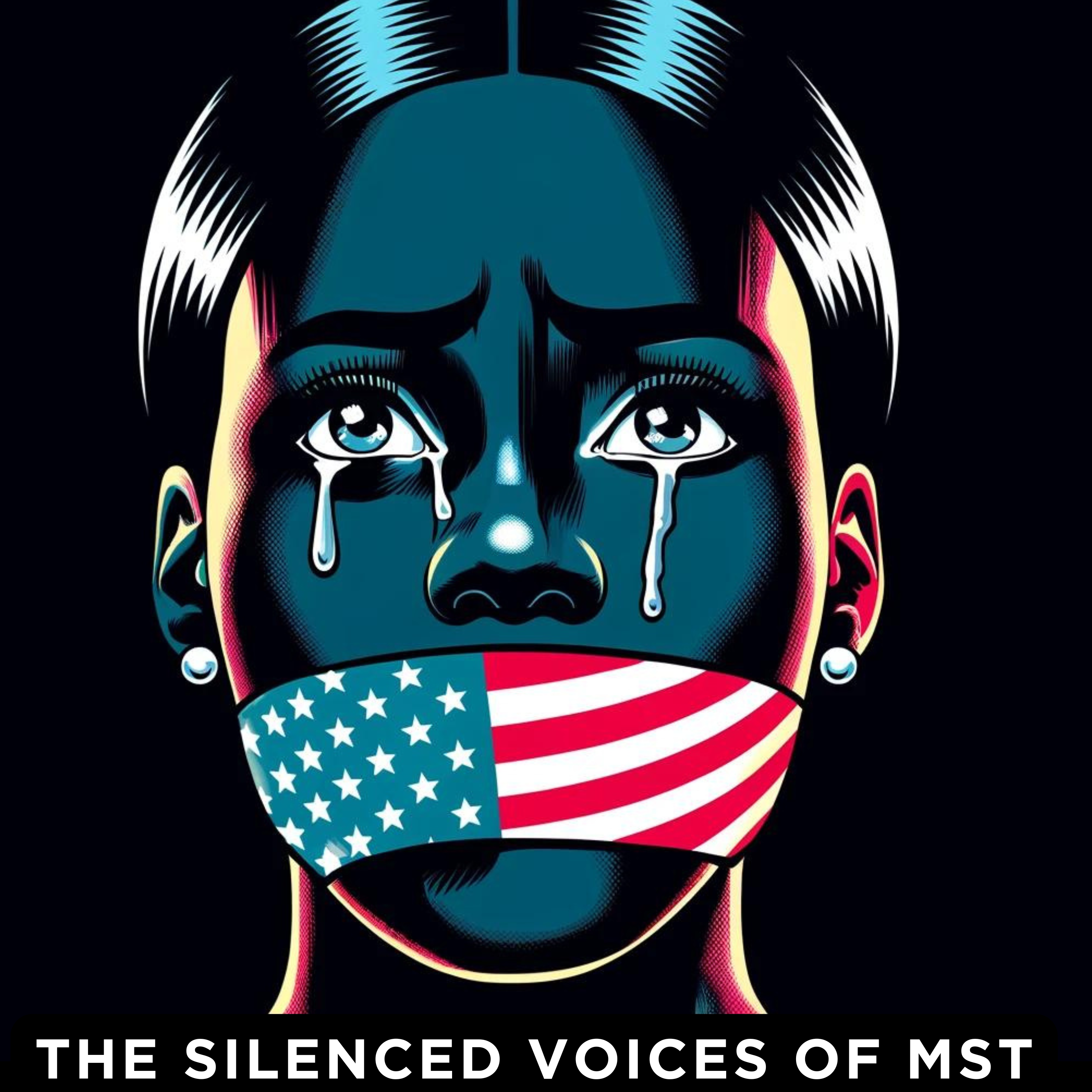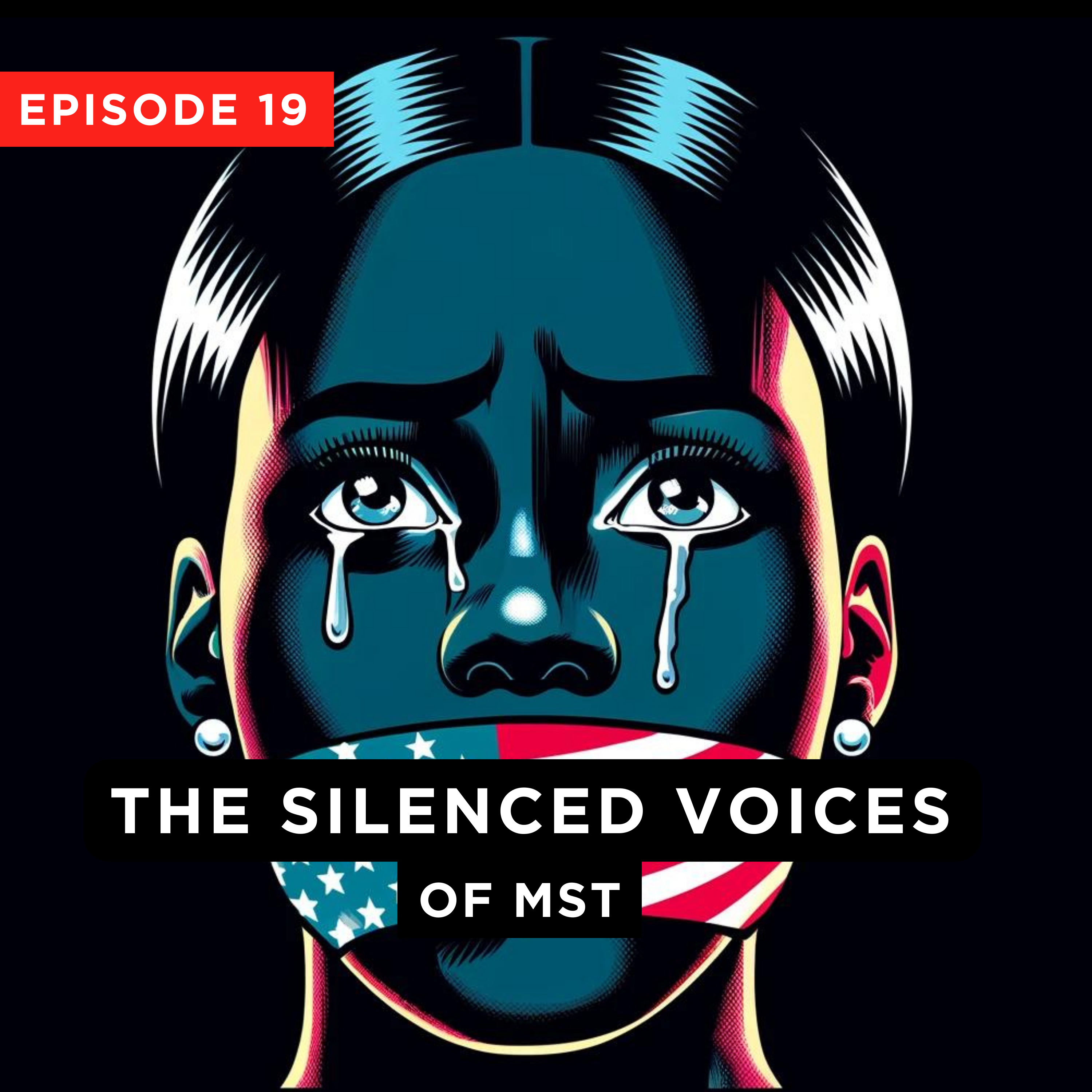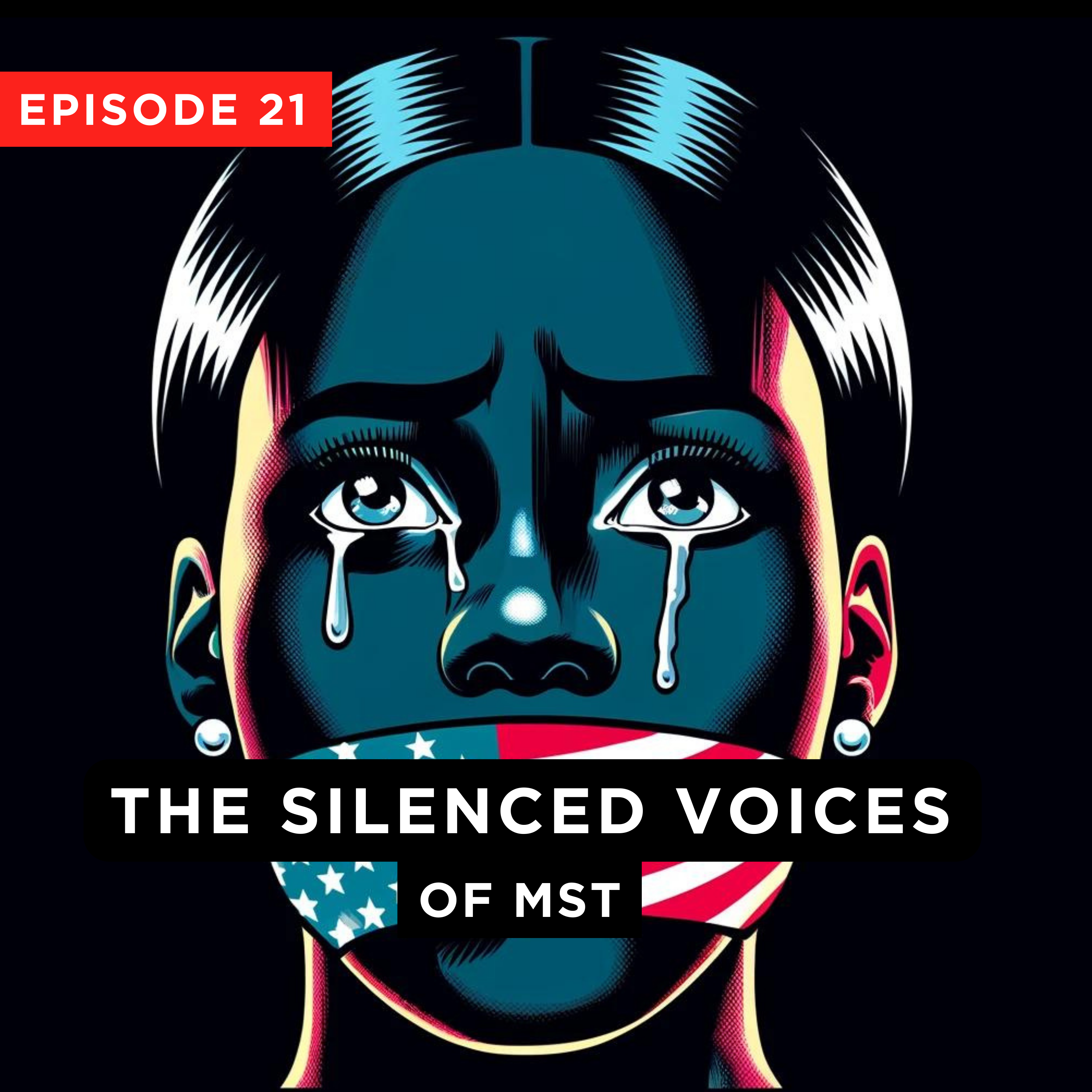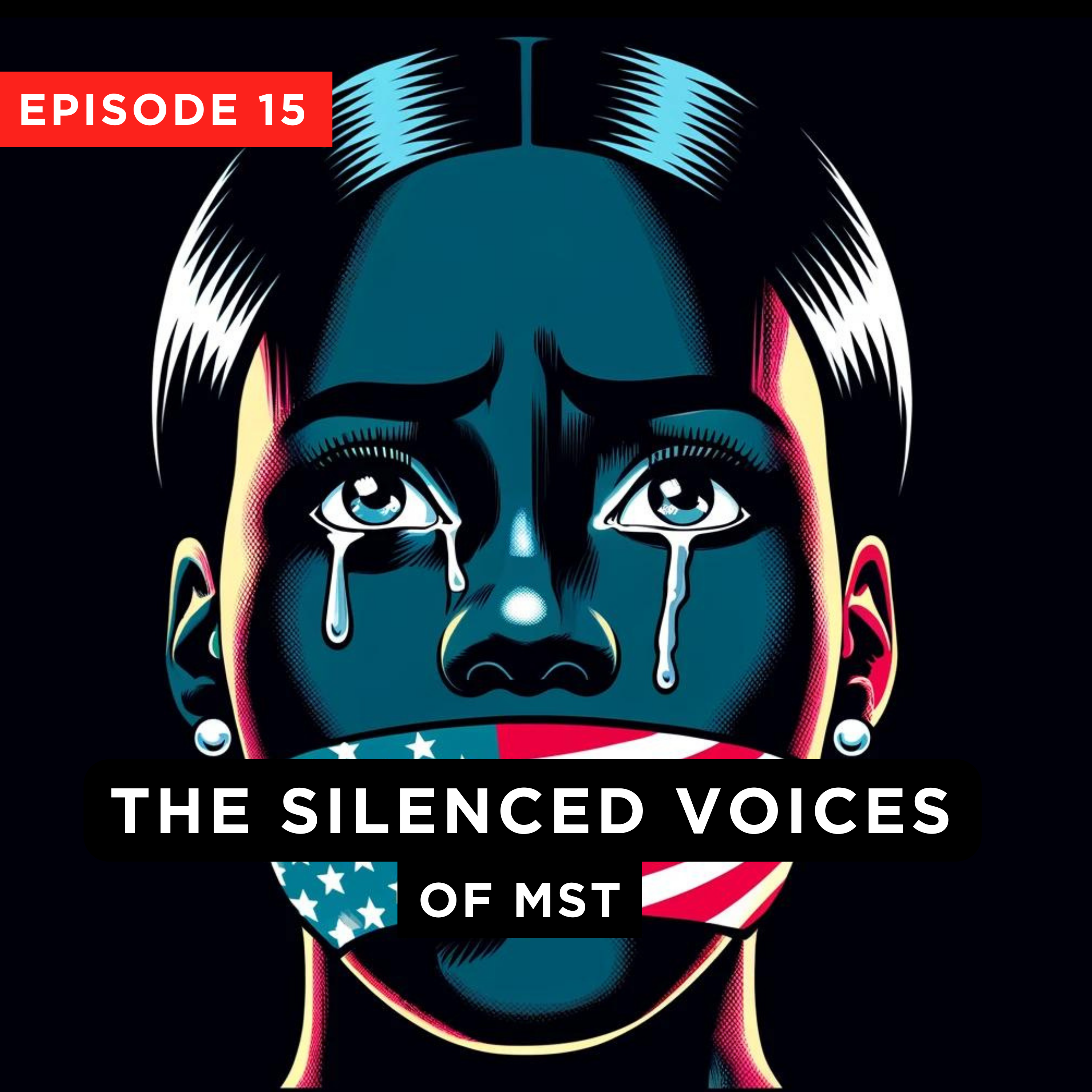Episode Transcript
[00:00:00] Speaker A: This is part one of Misty's journey, and she shares with us the moment that everything changed. Also, I wanted to send a message to the private first class that showed up at my home looking for Brian, which was coincidentally the name of my guest in the previous series. Just thought she should know. I'm not a coward. You're welcome to come back anytime. I firmly believe in the Second Amendment, and I'm not Nick Fuentes.
Anyway, with that being said, here's Misty.
[00:00:29] Speaker B: My fake name is Misty. I don't really want to say my real name, but I like. I will share that. I like the name Misty. I have an Instagram account, Misty Days, and I chose that because I. I feel like I've spent a lot of days with mst, so that's where that name came from.
[00:00:52] Speaker C: I completely understand. And it sounds like MST has been this very defining thing in your life, so we're just gonna go through it and help people understand your journey. So what service did you. Actually. Let's go back even further. When you were little, did you ever think that you were gonna join the military, or it just kind of came about through a recruitment commercial or something like that?
[00:01:18] Speaker B: No, both my parents were in the military. They were in the Air Force. They were both medic. And then later, when I was about eight years old, my mom joined the Navy Reserves, and I thought that was really cool. She would go to Hawaii once a year, and so that was really cool. And I liked her uniform. She also was a civil servant at a local base, and she worked on jets, and she loved jets, and she was really proud of her career accomplishments. And so my brother went in the army, so it was a family thing. Yeah.
[00:02:04] Speaker C: Yeah, I understand. Well, once you grow up in it, it's just kind of in your blood, you know?
[00:02:10] Speaker B: Yeah.
[00:02:11] Speaker C: Did you ever get that restlessness of, okay, it's been about three, four years. It's time to go somewhere new?
[00:02:18] Speaker B: No, because they.
My dad got out when I was a baby. You know, he was a medic. So I think while I was being born, he went and did some scouting for jobs, and he ended up working at the hospital I was born at. So we stayed after that, after I was born, so, yeah, I didn't move around.
[00:02:45] Speaker C: Gotcha. So when you joined, which branch did you choose?
[00:02:52] Speaker B: Well, I had to be different, you know, because there was the Air Force and the Navy, and my brother joined the army, so that left the Marine Corps until I joined the Marines.
[00:03:02] Speaker C: Was that just a shock when you got off of the bus?
[00:03:05] Speaker B: You know, I think because I was 18, the yelling and stuff, that wasn't that big of a deal. Actually, boot camp wasn't that big of a deal because I was so young. I mean, it was hard and they did yell at me and yell at everybody else, but it was okay. You know, I think it's harder for the older people, you know, to be yelled at and so many, you know, crazy little antics, but for an 18 year old, it wasn't that bad.
[00:03:32] Speaker C: Yeah, I hear you. Did you feel like a sense of camaraderie while you were going through all of that and learning about the culture?
[00:03:41] Speaker B: Yeah, a little bit, but not that much. I was just trying to get through moment by moment.
[00:03:49] Speaker C: I guess I have to ask where your parents stopped that you chose the Marine Corps?
[00:03:53] Speaker B: Oh, yeah, my dad, he.
My dad, he read philosophy books. He was a very quiet man. He loved art and photography. So he was really just like, no, you don't know what you're doing. And he was right. You know, I was not a good fit for the Marine corps.
And especially 19, early 1980s women were just then, you know, becoming more prevalent and I was a novelty and they made fun of my voice a lot, so.
[00:04:34] Speaker C: Gotcha.
Yeah, I definitely have to explore that some. So since women were just entering the force permanently, really at that time, what was the attitude like from the men?
[00:04:55] Speaker B: It was some.
It was no big deal. And then some Marines, like there would be old school now I would be old school Marines, but back then, old school Marines, they would actually ask me, what are you doing in my Marine Corps? I got asked that, of course, quite often. You know, they didn't like it. And back then there were still Vietnam veterans. And back then they actually gave people the choice of going to jail or joining the Marines. So there were some unsavory characters, that's for sure. They. Yeah, nothing like modern times. Pardon?
[00:05:37] Speaker A: Is that still something?
[00:05:39] Speaker B: I don't think so. No, I. I don't think so. Not anymore.
I hope not. God.
Yeah.
But I didn't know that when I went in. Yeah. And you know, to be honest, I really thought the.
I, you know, I was so young. I just thought it was just. There's one thing that I liked about the Marine Corps, you know, when I looked at it, is that you would always be by the ocean because, you know, they're amphibious and there's only three main bases and they're all by the ocean. And I thought, I like that. So that was part of my decision making.
[00:06:19] Speaker C: Yeah, I could understand that. I definitely could. I'm of a complete water. I might be called them water babies. Water ladies.
[00:06:27] Speaker B: Yeah. I mean, I still love the ocean.
[00:06:30] Speaker C: Oh, yeah? Yeah. There's just something about it. Like the waves coming in is such a relaxing sound. And. Yeah, that's a peaceful place. Or you could be the drinking and partying type, which I also did there, too. So you could have a good time or a peaceful time. It just depends on your. Your personality and your group of friends, too.
[00:06:53] Speaker B: Yeah, that's true.
[00:06:55] Speaker C: So going forward, when you made it to your first duty station and was just kind of getting accustomed to things, what was it like?
[00:07:06] Speaker B: Well, what happened is I went to boot camp, and then I decided to go right from graduate boot camp, and the next day I reported to my tech school.
[00:07:19] Speaker A: Trigger warning contains essay details. Freezing victim blaming, self blame, derogatory words towards women, and predatory behavior by older men.
[00:07:29] Speaker B: Boot camp is at Parris Island, S.C. and the school I was going to was at Camp Johnson, which is a few miles down the road from Camp Lejeune. And so I got myself to the barracks, got settled. A few hours later, I got.
That's how long it took. It took a few hours for me to get. I went to look for food. And, you know, during boot camp, the drill instructors did tell us, don't go anywhere by yourself. But you know, teenagers, they're told that all the time, and it's not really practical. You sometimes you need to go someplace by yourself. And I was hungry. There was nobody around, so I just went to go look for some food. And that's how quickly it happened.
It's not funny, but, you know, it is. It's pretty crazy. So then, you know, a few days later, it didn't take long to realize that this was a very, very bad place. It was. It was awful. Nowadays you hear about the Camp Lejeune water, the contaminated water. And so when I look at. Back at how sort of insane that base was, I wonder if there was neurological damage already happening at that time, because it was just weird.
And I didn't have experiences like that, like at Camp Pendleton in California, which is so much more normal. And I thought it's because it's California, and I'm from California. That's where I'm from. So Camp Lejeune, Camp Johnson. To me, it was hell on earth from the get go, obviously.
[00:09:29] Speaker C: Obviously.
So I'm. I'm thinking back then, there was no sort of reporting structure.
No, really go to.
[00:09:40] Speaker B: Well, what happened? You know, I just went to the snack bar and there was a Young man. And to be honest, he looked like the poster child for a Sunday school class. I mean, he's just really very nice looking young man. And they kind of walked me the wrong way, which is easy to do because I just arrived and we sat and talked a little bit. And then I went to get up and he pushed me down. And that happened several times. My head started hitting the ground and so I froze. But because I froze in my 18 year old mind and without any other resources, I thought, well, I didn't fight hard enough. I should have not let that happen. And if they asked me, did you fight? I thought I didn't fight hard enough. And so I just blamed myself and I didn't tell anybody. But there were no posters. There was, you know, even in, in boot camp at one point. This is, this is how. And it's. I was very innocent, naive. So at one time at boot camp did. We were all sitting around and one of the drill instructors says, now some of you out there.
And I looked, I looked. Yes. And I looked around and who's, who is this? And I just really missed a fight about who the sluts were. And I couldn't even figure it out. I was like, I don't know, how do you know somebody's a slave? I mean, this is literally my thinking in boot camp. And you know, because I was barely 18 and I just led a very simple life. I was unsophisticated, very unsophisticated. So, you know, then after being in school, say five days, I was, you know, you know how you, you know, they love the label. Well, especially back then, I don't know if it's still true, but you know, you're, you have a label and it didn't take long.
So.
So when I was at this school, you know, it really was a playground for NCO predators. I mean, it was obvious these, you know, every fresh batch of new enlisted students, that was just time for them to have, you know, new fun and to go after them and take advantage of the situation.
So it was really a bad place at a bad time. And I don't think every female that went there had a problem. But because I was naive, I didn't have strong enough boundaries. These were much older males and they had a lot of practice, I'm sure some. So I was pretty vulnerable to the whole thing.
So anyway, it didn't go well for me at all at school, but I did survive. And I graduated after, I think the whole total course was four months.
Then I went on to Settle into active duty.
And this is. I think it's kind of funny. I went through this phase after school, you know, because I'm trying to coach myself. I didn't have anybody else, so I'm, you know, trying to do better, trying to be a good Marine.
So as a way to set boundaries, I had this, what I call the Fu phase. But I'd say the whole word.
If an enlisted Marine said hi to me, I'd say F you. They said, what's your name? I would say F you. If they said the nice weather, I would say F you. So I just wouldn't talk to anybody. I would just say F you. But it was helpful because, you know, after the craziness of school, it was kind of a way to reset. And then slowly I just learned to be, you know, a basic, decent Marine. That was my goal, just to be an everyday Marine. No attention, just, you know, go to work, have my. Have normal days, that kind of thing.
So.
[00:14:21] Speaker C: And that's kind of one of the very few ways a woman can. Can survive in a military environment.
At work. I work for one of the VA hospitals and we had an event for women Veterans Day, and I was a photographer for it. And it struck me while I was there that these women were from all different services.
They rarely smiled unless they were talking directly to one another.
And there was even a general there where she was very personable and fun, but like straight faced the whole time. And it dawned on me like, yeah, I rarely saw women smile while I was in the service. And then thinking of my mom, she was in for two decades and she not a big smiler. And it's not because she's unhappy. It's because it's. It's like a shield.
Yeah, a shield from attention that you don't want. And not to say that anyone has to smile. I know I scowl when someone tells me to, but it's just wild that you can't do something that's natural to just human expression. Because someone will take that as inviting and then someone else will find that as a reason to blame you.
[00:15:52] Speaker B: Yep, true. So true.
[00:15:55] Speaker C: Yeah, I'd say the, the room probably had 50 women in it. And for. For 50 unsmiling women at once, all, you know, chattering away, eating breakfast, talking about service.
And I wouldn't say they had grim expressions, but it was mostly expressionless.
[00:16:19] Speaker B: Wow.
[00:16:20] Speaker C: It was, it was pretty interesting to see. And it really. It just dawned on me then. And then also in some of the Facebook groups, you know, how people introduce themselves when they join pretty much every single Marine that I saw in one of the MST groups.
They. They were female, and they would all, like, post a picture of them Scout saying, like, this is how I got through service. So that's really interesting to point out that we have to have that sort of completely unapproachable facade just to be left alone. And not only left alone, but just, like, treated like an equal.
[00:17:03] Speaker B: Right. Well, I think, for me, because I didn't fit the mold anyway, I. I think I did still smile, to be honest. I. I didn't take it to that level.
I didn't because I, you know, I was a misfit, so.
[00:17:26] Speaker C: I understand.
[00:17:27] Speaker B: And. And that's the thing, you know, if. If that's what you had to. I would have rather be a misfit then just have to be so serious all the time. And so that's, I guess, part of the reason I was a misfit because I just. I couldn't do that. It. You know, and I think I was frustrating to a lot of the Marines, you know, the old Corps, old school Marines, because in my mind, I was going to be me, and I could be in your Marine Corps, and I can be me. That was one way I was rebellious, you know, I was a bit of a rebel that way. I just. I wasn't gonna play that game. I just kept that part of myself.
So anyway, I love that.
[00:18:19] Speaker C: I love that. That's. That's.
[00:18:21] Speaker B: Oh, yeah. I. I was a rebel in the weirdest ways. It was the 80s, so I'd wear, like, lavender lipstick, and I get in so much trouble. You can't wear lavender lipstick. But, you know, I was, you know, young. Young. There's. Young people can be rebellious. And so I had silly little ways to rebel.
So I didn't scowl and I kind of tried. I. I was embracing the 80s, so.
[00:18:55] Speaker C: The big hair.
[00:18:56] Speaker B: Oh, yeah, I had big hair. I still do.
[00:19:01] Speaker C: That is wonderful.
[00:19:03] Speaker B: I. I know.
[00:19:03] Speaker C: I love hearing when people refuse to reject their individuality. And I know for sure, in. In training environments, especially at the very beginning, like, the worst thing you could be called is an individual individual. So to hear you just reject that completely is wonderful.
[00:19:25] Speaker B: Well, I didn't reject it completely. I had little. I just had little rebellious things. And I'm probably still that way. It's just. Can't stamp it out of me, I guess.
[00:19:37] Speaker C: When I was in rotc, we had our whole uniform. We usually had to wear the blues on Thursdays, but I would wear rainbow socks. Socks, like, under my black Socks.
So I hear you.
[00:19:50] Speaker B: Yeah, just. Just a little something.
Yeah.
[00:19:55] Speaker C: And I think I would try to sneak earrings. Like they were the little diamond studs, but they weren't quite clear. They were either like light blue or something.
I just try to sneak by. But there's just. And when. When you're kind of like a.
[00:20:12] Speaker A: A more free.
[00:20:12] Speaker C: Free spirit, like being crushed into that box is actually very, very inhibiting for just you as a person internally. So I. I totally get it.
[00:20:28] Speaker B: Yeah.
[00:20:30] Speaker A: So how long did you end up.
[00:20:31] Speaker C: Serving in the Marine Corps?
[00:20:34] Speaker B: Well, I did.
I did three years and I did a little reserve time.
[00:20:40] Speaker A: Okay. And trigger warnings contains harassment, dehumanization, explicit sex, Croatian bribery, alcohol and drugging, lost memory, waking up alone and victim blaming.
[00:20:53] Speaker C: Thinking that this initial four months when you started had quite the impact on your life afterward.
[00:21:01] Speaker B: Well, it.
I'm gonna say that, you know, there was the actual, you know, first event, but the harassment, the words hurt more, the things that were said and how I was treated. You know, I was dehumanized so that people could mistreat me. Basically.
People weren't seeing me for who I was. That was, I think, the worst part. They were just making me out to be whoever they wanted to be me to be so that they could say terrible things and think terrible things. And that was very crushing to an 18 year old. But I wanted to give you an example of the level of depravity at this space. One day I was at some kind of work party and then I ended up in this alone with this senior with the E7 female.
And she was talking to me and she wasn't mentoring me. What she asked me is if I would be interested in pulling a train.
And I said, what's that? And I probably still wouldn't know if she'd be that question. Question. And she said, you know, you just have sex with a bunch of guys and it's really fun. And I said, no, no, no, no, I. I don't want to do that. And she didn't pressure me, but she did ask me that question. That is why I'm. I said, is there. Was there some kind of neurological damage already done by the ladune water? I tried to be a good Marine, as I told you, you know, just.
Just a decent Marine. I was never going to be a superstar.
I got sent to Okinawa when I was 19 and I was the only woman in the platoon. And I hung out with these three NCO coworkers.
And we went to the beach, we go snorkeling, we go to a little bar quite often.
And this one day, we're at the beach, and One of the NCOs tells me that I should go say hi to these Okinawans that are at the beach. And they were just like some older men, four of them, and they were barbecuing. So I said, okay, I'll go say hi. So I went and said hi.
They gave me a purple potato that they had barbecued, and it was very delicious. So I was happy because I got that purple potato, and then I went back. So this corporal, he has this. A little later, he has this expensive bottle of Japanese liquor, and he told me that he had traded it for me to go talk to the Okinawan guy.
Yeah. So I laughed, but I thought, that's pretty creepy.
[00:24:14] Speaker C: It is.
[00:24:16] Speaker B: So then a few days later, I'm with this guy and one other. Usually there was three of us, but this evening there was only two. And we went to. It was their favorite little, tiny little bar. So we all three of us had a drink. And almost immediately, they start asking me to take my top off.
And I'm shy. I'm like, no, no, no, no. And the Okinawan bartender had a video camera, and so that's all I remember. The next morning, I woke up half naked on a beach.
And so to this day, I have no idea what happened. So, of course, they said that it was me, that I got drunk, that I was really wild, and they couldn't control me.
And, you know, I had never heard of date drugs or, you know, anything like that, so I didn't believe them, but I didn't really have a comeback for them. I didn't. You know, it just felt weird. It felt surreal.
We were never really friends after that, and.
Yeah, right. So, yeah, it was just too weird. I thought about that for so many years, and in my 30s, I was like, I think they drugged me. I mean, that's how I really just kept trying to figure it out, figure it out. And then I think finally there was talk about date drugs and stuff like that. And I thought.
I finally came to the conclusion that it wasn't me, that these guys had done something.
I have no idea what happened, but there was a camera there. I don't know.
[00:26:11] Speaker C: Yeah.
[00:26:13] Speaker B: I don't know what happened, but they do. And they have to live with that.
[00:26:18] Speaker C: Exactly.
[00:26:19] Speaker B: And hopefully they suffer. They feel bad. I hope, at least.
So you were.
[00:26:25] Speaker C: How old would that happen? 19.
[00:26:27] Speaker B: Yeah.
[00:26:29] Speaker A: That was part one of Misty's story. Again, it's heartbreaking. And if you've experienced something similar. I am so sorry if you've ever carried a secret like that, I would love to hear from you. You can send us an email, you can contact Misty on our website, or you can just leave your thoughts in the comments. That works too. Part two will be coming out next.
[00:26:51] Speaker C: Week, and if you want to view.
[00:26:52] Speaker A: The whole episode at once, go ahead and check out our Patreon account. It's linked in the first comment below. Thanks so much. We'll see you next time.




